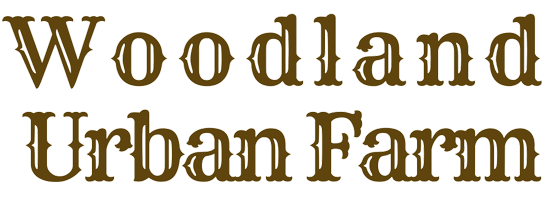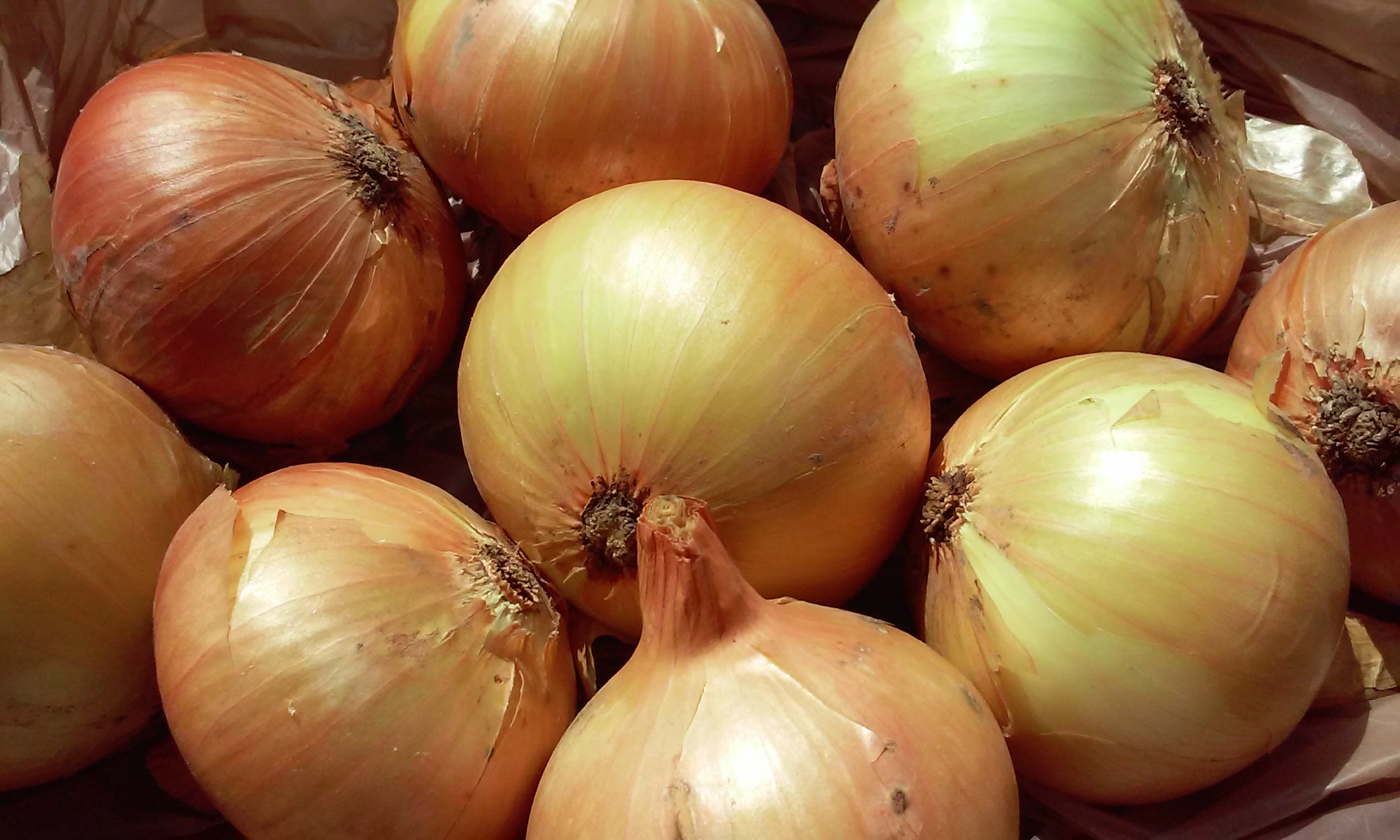I tell people about the necessity of urban agriculture, how having several small farms scattered throughout a city strengthens its food security, especially in times of crisis. If you think about Katrina or any other huge disaster where people had a hard time getting what they needed, it’s always the case that they depended on their goods coming from elsewhere. Things fell apart because distribution was crippled. Had every home in New Orleans had a cistern full of rainwater in the attic and a three-month’s supply of food put up somewhere dry, things wouldn’t have turned out half as bad as they did.
This past week, we’ve been eating a lot of lamb’s quarters. That’s a plant, in case you’ve never heard of it. It’s a weed that grows all over this region. I think the only weed more prolific in our yard is garlic mustard, which often finds its way into our dishes along with the lamb’s quarters. Add in nettles, chickweed, purslane, red clover, dandelion, Japanese knotweed, and the occasional squirrel or rabbit, and you can make several meals just on what grows wild in any un-sprayed, un-mowed urban lawn. Imagine, then, how much food people would have on hand if they actually went to the trouble of growing gardens and storing the produce rather than relying on the grocery store having what they need every few days. Even if a tree were to fall on your house and wreck your pantry, there’s more food growing right in your yard. You could have a warren of rabbits or a flock of chickens in a garage and be well supplied until the next harvest from the garden.
Without intending to, I’ve made Frijolito Farm a demonstration of this sort of resiliency. The first year, I started in my back yard with a tiny budget. For the most part, I had no idea what I was doing, as I’d never produced more than just a little food as a hobby before then. My garden was 30 miles away and I didn’t have a working tiller. All the same, I grew…I think it was about $11,000 worth of food that year. The following year, I grew over $14,000 worth, and $5,400 of it was profit. In 2010, we had a baby (meaning Mayda was no longer able to work the Jefferson Township market while I was at Clintonville), code enforcement forced me to relocate the chickens, and I lost several hundred of them to predators. That really put a strain on us. I ended up $2,300 in the hole that year, but I still managed to produce $12,300 worth of food. And then last year–the nightmare, the Perfect Storm, with the floodiest spring on record and no money for chicken feed and a broken truck and everything else–I actually managed to make a profit. It was only about $500, but I still produced about $15,500 worth of food. And each year, the farm has gotten bigger, more established, more efficient, and has gained a larger customer base and media presence.
Now, this year, we’ve stepped it up a notch. Mere predators, climate change, and economic catastrophe haven’t been enough to sink this farm. Now we actually have a crazed animal rights extremist (or more than one) attacking our farm. They haven’t blown anything up (yet), but they have stolen entire flocks of chicks, stolen equipment, and ruined feed. To pull this off in the manner they have, they’ve had to have been stalking me, constantly surveilling the farm. To counter this, I’ve found myself resorting to measures I haven’t practiced since the Army taught me how 20 years ago. We haven’t run into each other yet, but it’s inevitable if they continue.
The whole situation reminds me of the joke that Republicans complain that the government can’t do anything right, then they get into office and prove it. These animal rights people are like that. They complain that all meat is raised inhumanely in factory farms, then they set out to make their claim true by attacking the free-range farms. If your statements don’t bear any resemblance to reality, just change reality until the lies are true.
If I can’t catch these people or keep them out, the only apparent option for raising chickens will be to raise them completely indoors, locked inside for their whole lives. I could do that with the facilities I have now, and it would still be local and antibiotic-free. I could even give them grass and weeds from outside to pick through, but I’d rather let chickens be chickens outdoors. It’s like these people are trying to force me into adopting the very practices they claim to oppose.
I think they think they’re going to drive me out of business, but that’s just ignorant. Broiler chicks cost around a buck apiece. If they stole every last chicken I owned, I could raise enough money to get more just by panhandling for an hour. Heck, some hatcheries will give certain chicks away for free. Previously, I’d lost this many birds (and more) to predators. If financial losses were enough to put me out of business, I’d have quit a long time ago. As long as you don’t let debt get so out of hand that you lose the farm, there’s no such thing as ruinous failure in this business. If you lose EVERYTHING, nature just makes more. And since I’m raising chickens instead of cows and horses, it costs relatively little to start over.
I don’t think these militant vegans realize the resiliency of small-scale, local food production, especially when it’s supported by the community in an urban area. To put me out of business, they’d have to steal every chick out of every hatchery that ships through the mail in the continental United States. They’d have to burn every pallet and steal every piece of salvageable building material in central Ohio. They’d have to cause every bakery, grocery store, and restaurant in the area to stop throwing away food. They’d have to make every edible plant in the area stop growing. They’d have to stop the sawmills from making dust, stop offices from shredding paper, and stop leaves from falling off trees. They’d have to stop the clouds from providing me with water. And then they’d have to keep doing it in perpetuity, because if they ever stopped, I could just pick right back up again. Agriculture on the scale I’m doing it has endured for 10,000 years, and it’s seen far greater challenges than those presented by a few half-baked idealists with a poor grasp of ecology.
I think Mayda really put it best. She said, “It’s like trying to make someone not be a writer anymore by stealing all their pens.” They give those things away free at the bank. I might not ever get rich at this, but the only way to make it impossible for farmers to ever grow food again is to kill us all before we can teach anyone else…and it’s already too late for that.
So ALF, PETA, MFA, Earth First, lone whacko, whomever is behind this: You’d do well to go sit by a creek for awhile and observe. Life consumes life. Some of them have faces and some don’t, but everything gets eaten by something else eventually, and everything tries not to. Do chickens enjoy being eaten? Of course not. Chickens run away from you for the same reason that roses have thorns. Even bacteria try to avoid being killed, but I don’t hear you advocating that we should all suppress our immune systems to be kind to pathogens. Everything dies and everything eats–including us. We’re not alien visitors who follow some “prime directive” to not interact with the other creatures on this planet. We’re supposed to leave footprints. We’re from here. We’re part of here. We are animals evolved to consume and be consumed as part of this ecosystem. Committing crimes in a war to stop other people from eating meat makes as much sense as waging war on squirrels to protect the lives of acorns. There’s a reason you have canines, binocular vision, a large brain, the ability to throw, and a physiological need for certain nutrients not easily obtainable from plants. It’s the same reason you don’t have multiple stomachs and endlessly growing teeth. If you want to deprive yourself, fine. Godspeed. But keep screwing with my farm, and you’ll accomplish nothing…other than perhaps learning firsthand about the limited dietary offerings of correctional institutions.
Even the ants herd aphids. Agriculture is inevitable.


